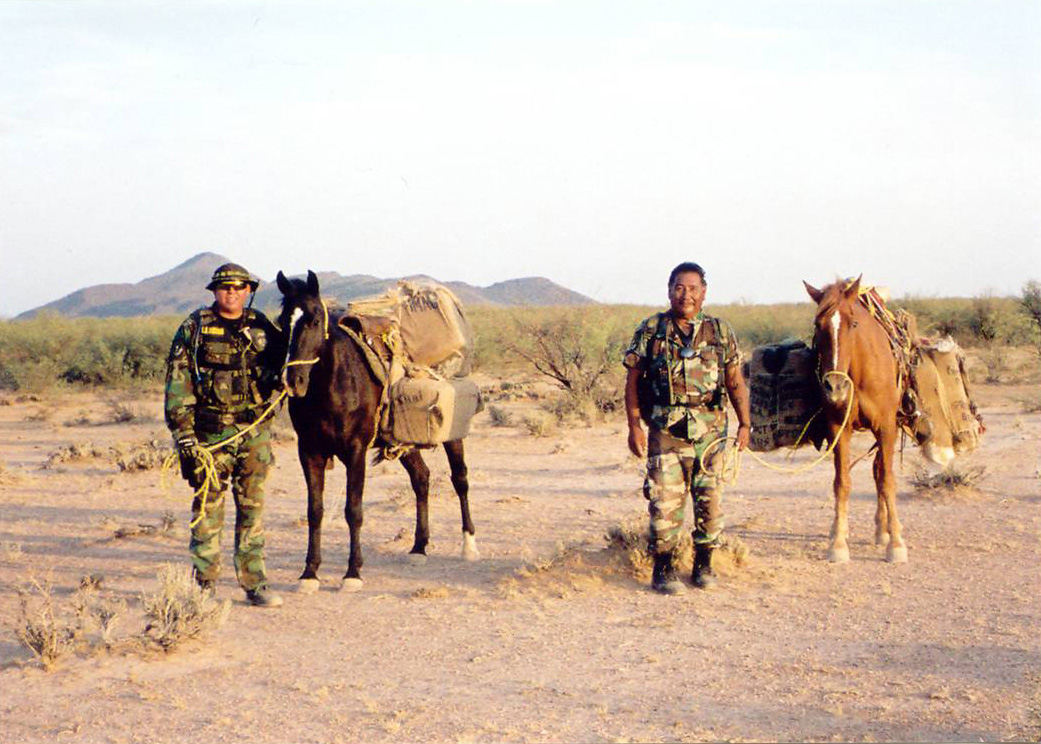
- Details
- By Levi Rickert
On Wednesday, the Senate Homeland Security and Governmental Affairs Committee unanimously advanced the Shadow Wolves Improvement Act, a bipartisan bill introduced by U.S. Sen. Ruben Gallego (D-AZ). The legislation aims to bolster border security and expand career opportunities for Native American law enforcement officers serving on tribal lands.
“The chaos at our southern border has harmed Arizona communities and caused a dangerous rise in illicit smuggling, especially on tribal lands like the Tohono O’odham Nation. This has stretched tribal law enforcement thin and diverted them from doing their primary jobs of policing their streets. That’s why the Shadow Wolves program is so important,” Senator Gallego said. “I want to thank my colleagues Senators Hoeven, Lankford, and Kelly for co-sponsoring this legislation, and Chairman Paul and Ranking Member Peters for working with me to pass this through committee.”
The Shadow Wolves Improvement Act implements key recommendations from the Government Accountability Office (GAO) to modernize and expand the Shadow Wolves program. The Shadow Wolves are a specialized unit composed of members of the Tohono O’odham Nation, tasked with patrolling a 76-mile segment of the U.S.-Mexico border. They are highly skilled in tracking smugglers who attempt to move illegal goods through tribal lands, drawing on deep cultural and geographic knowledge.
Currently, Shadow Wolves lack the same career progression and compensation opportunities as other Homeland Security Investigations (HSI) agents. Senator Gallego’s bill addresses this disparity by authorizing ICE to transition Shadow Wolves from excepted service to competitive service status after three years, ensuring fair treatment and expanded advancement opportunities within federal law enforcement.
More Stories Like This
Native News Weekly (August 25, 2024): D.C. BriefsZuni Youth Enrichment Project Announces Family Engagement Night and Spring Break Youth Programming
Next on Native Bidaské: Leonard Peltier Reflects on His First Year After Prison
Deb Haaland Rolls Out Affordability Agenda in Albuquerque
Boys & Girls Clubs and BIE MOU Signing at National Days of Advocacy
Help us defend tribal sovereignty.
At Native News Online, our mission is rooted in telling the stories that strengthen sovereignty and uplift Indigenous voices — not just at year’s end, but every single day.
Because of your generosity last year, we were able to keep our reporters on the ground in tribal communities, at national gatherings and in the halls of Congress — covering the issues that matter most to Indian Country: sovereignty, culture, education, health and economic opportunity.
That support sustained us through a tough year in 2025. Now, as we look to the year ahead, we need your help right now to ensure warrior journalism remains strong — reporting that defends tribal sovereignty, amplifies Native truth, and holds power accountable.
 The stakes couldn't be higher. Your support keeps Native voices heard, Native stories told and Native sovereignty defended.
The stakes couldn't be higher. Your support keeps Native voices heard, Native stories told and Native sovereignty defended.
Stand with Warrior Journalism today.
Levi Rickert (Potawatomi), Editor & Publisher


